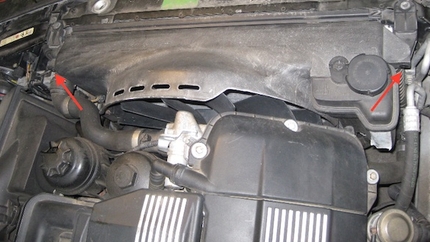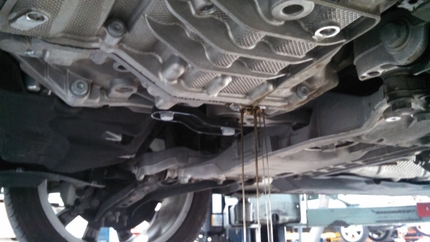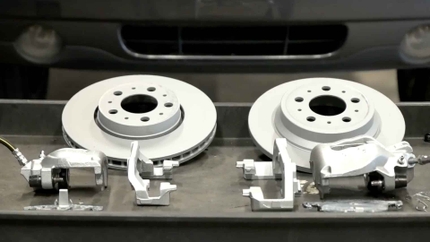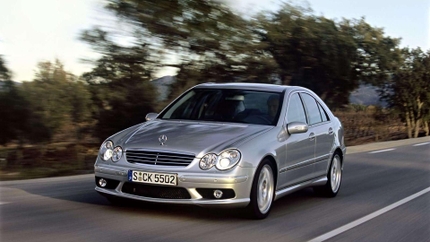- 03/03/2014
- 1 Min Read
- By: Gareth Foley
Made in Germany: The Most Powerful Marketing in the World
Before I dive into this potentially sensitive subject, I’m going to state that this article may not sit well with people. I’m not writing it to make anyone angry or to be controversial. I’m just sharing some of the knowledge that I've learned through my own research and from friends who work in the manufacturing/engineering end of the auto industry.
Let’s get into it, because there is no going back after I say the following: “Made in Germany” is the most powerful marketing tool in the world. For a manufacturer, you can have the best packaging and the best advertising and it won’t mean a thing unless it has that fabled stamp on the packaging.
“Made in Germany” is one of the key selling points for many products because it symbolizes quality and excellence. For European auto parts, this is pretty much the same story and we often get asked here at FCP, "Is this part made in Germany?”
I can’t blame anyone for asking this question. People want to be assured they are going to receive a quality part. After all, there are a ton of cheap no name parts on the market that have questionable quality. If they want the best quality and the most reliable, “Made in Germany”, has become a stamp that is held to one of the highest standards and this is a deserved reputation. However, the “Made in Germany” label may not mean what you think it means. I dare to say that it may even be slightly misleading in some cases.
Let me explain this further.
For one, the way everything is manufactured has changed drastically over the last 10-15 years. Just-in-time manufacturing has allowed for companies to operate with lower overhead and to allow for specialized supply chains. In my opinion, this is a good thing as long as it’s managed properly. In a global economy, it's nearly impossible to manufacture everything under one roof and turn a profit. Many of the most renowned German auto part manufacturers that we know and love manufacture their components around the world. However, these components and parts are manufactured in their facilities, by their employees, under their strict quality control standard and specifications. This is ultimately the most important thing.
Currently, the only requirement for the “Made in Germany” label to be put on a finished product is for the final assembly or touches to be completed in Germany. This means that most of the value of the product could be from elsewhere and you would never know about it. Germany, being the third largest exporter in the world in sectors such as in manufacturing and engineering, relies on this label to sell products. Recently, the label has become so controversial in the EU that many lawmakers are trying to push an amendment that will require a product to have 45% of its contents to be from Germany in order for it to be labeled “Made in Germany”. This proposal obviously upset several industrial groups in Germany and as of today this amendment has not been approved.
I stopped being concerned about country of origin labels a long time ago. I came to accept that I will never know with 100% accuracy where the part or contents of the part I am installing truly comes from. However, what I am concerned with is the brand of the part. The ultimate difference between an OE or high quality aftermarket part and a no-name generic brand part is the design of the part, along with the manufacturing process and quality control standards. Companies such as Bosch, ZF, Behr, Hella, and VDO, to name a few, spend millions (potentially billions) on R&D to continually improve their product offering, technology, and manufacturing processes.
The best example that I can give from my own recent experience is when I installed 6 Bosch W8LCR spark plugs in my friend’s M20 swapped E21. Four of the spark plugs were stamped “Germany” and the other two were stamped “Russia”. Visually, the spark plugs were identical in every way except for the stamp. Without the stamp on the spark plug I would have never known about this truly insignificant difference. Large manufacturers can switch their suppliers and manufacturing locations frequently. Situations like this don’t bother me because the spark plugs were built in a Bosch factory, by Bosch employees, with materials sourced/specified by Bosch and most importantly , these plugs all had to meet the same quality control standards despite the geographic difference of the manufacturing location.
What I am trying to reach with this post is that all major automotive part manufactures build their products all over the world. At the end of the day, the country of origin stamp doesn't mean all that much. But I do believe the manufacturer's design, reputation, and quality controls standards in their supply and production chains are what matter the most, not the country of original label.
In your opinion, how much is "made in Germany" really worth?
About the Author
Gareth runs the BMW catalog at FCP Euro, he can be reached at gareth@fcpeuro.com











